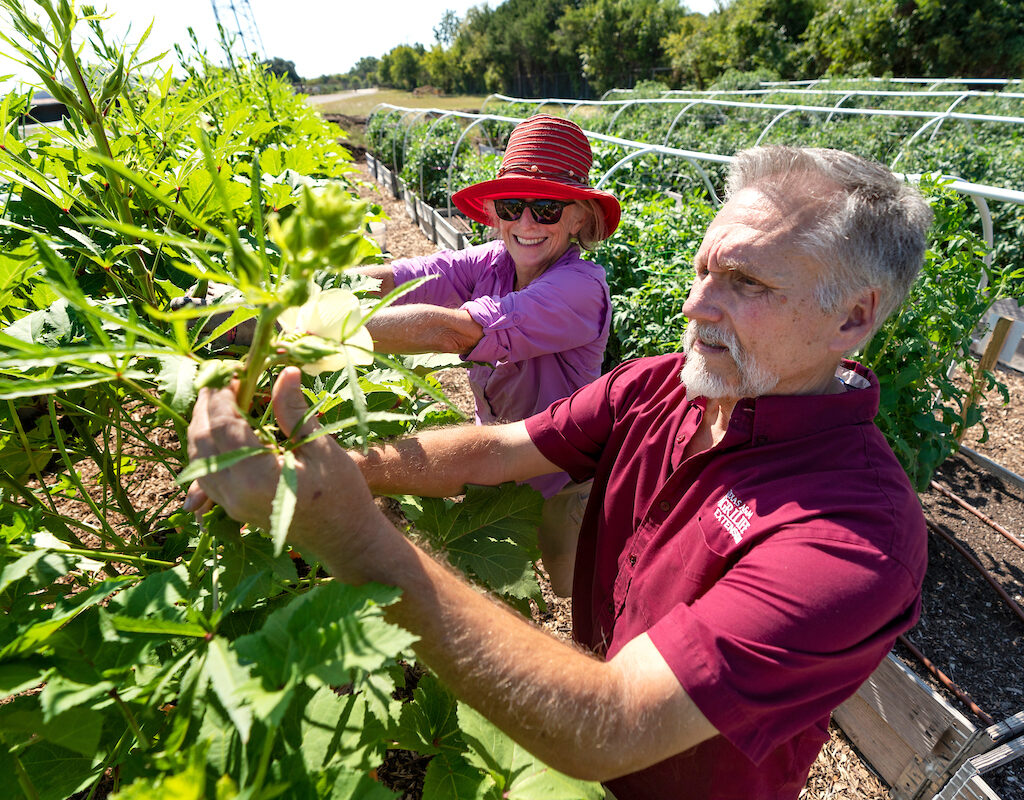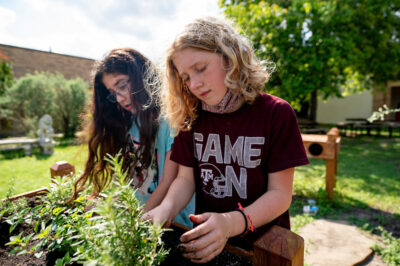Texas Master Gardener
- Type
- Program

Overview
Contact
The Texas Master Gardener program’s strength lies in its ability to meet the diverse needs of the individual communities it serves. By combining statewide guidelines with local direction and administration, the program offers the flexibility necessary to keep it a vital and responsive organization that serves all of Texas.
Master Gardeners are members of the local community who take an active interest in their lawns, trees, shrubs, flowers and gardens. They are enthusiastic, willing to learn and to help others, and able to communicate with diverse groups of people.
After completing special training in horticulture, persons who become Master Gardeners contribute time as volunteers, working through their AgriLife Extension office to provide horticultural-related information to their communities.
More choices in Community Horticulture & Local Foods
- Program
The Bennett Land Stewardship program funds conferences about land management in the Edwards Plateau, covering issues such as brush control, water management and estate planning.
The Cooking Well Series is a suite of programs which includes various lessons of interactive classes with research-based information accompanied by a cooking component.
Resources for this program are provided by county agents directly.
- Project
Students will explore the exciting world of plants, insects, water, soil, and ecology. Students can do community service projects to help provide healthy food and beautiful landscapes.

The Dinner Tonight program aims to provide healthy recipes for Texans and increase self-efficacy in meal planning, healthy cooking techniques, and food safety.

- Program
The Food Safety Education Program aims to increase safe food handling practices at retail and consumer levels to reduce risk of food-borne illness.

- Program
Preserving the Harvest is a program series that teaches ways to preserve foods with tested recipes and research-based methods, using “hands-on” activities to practice preservation skills.






